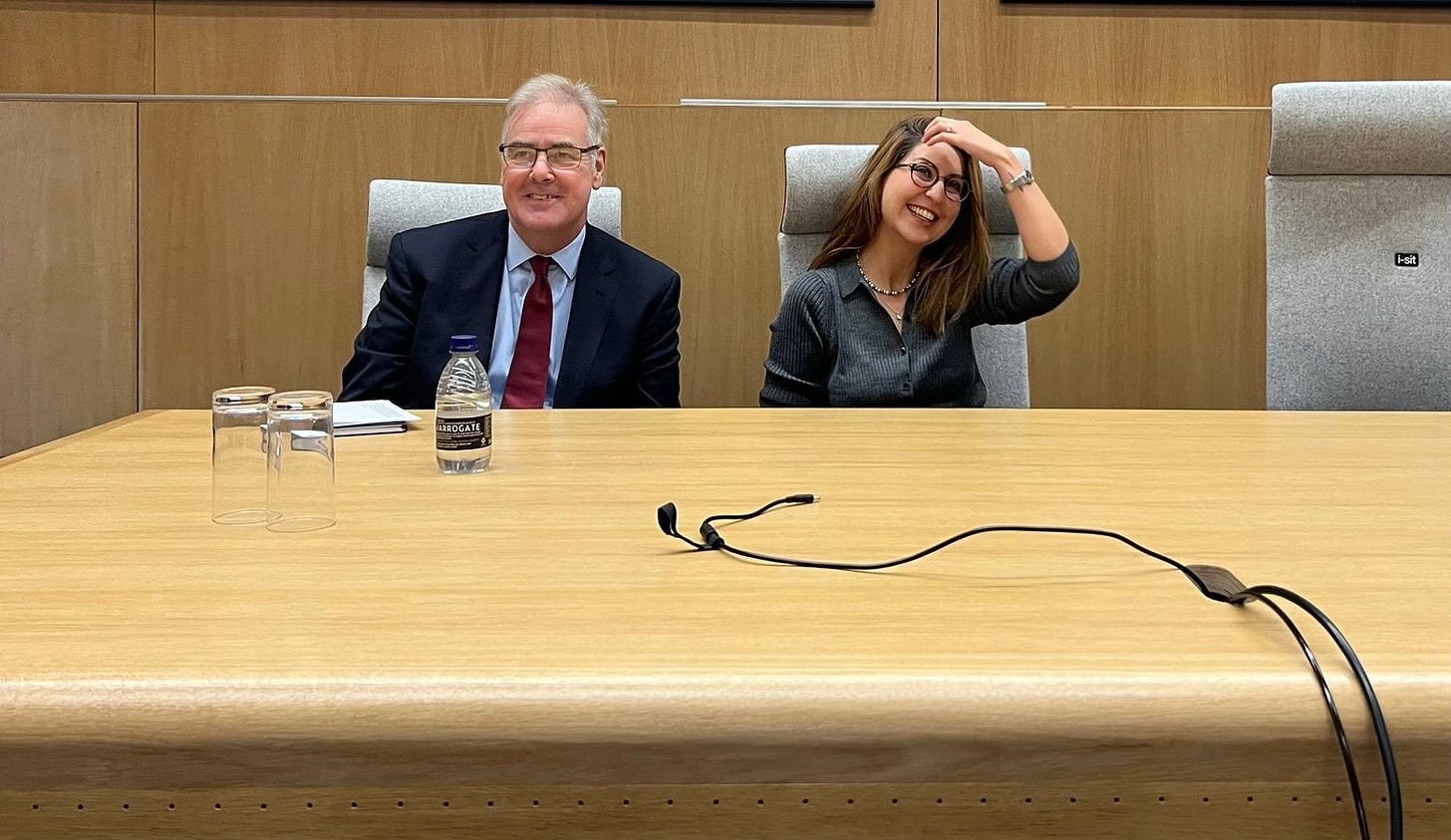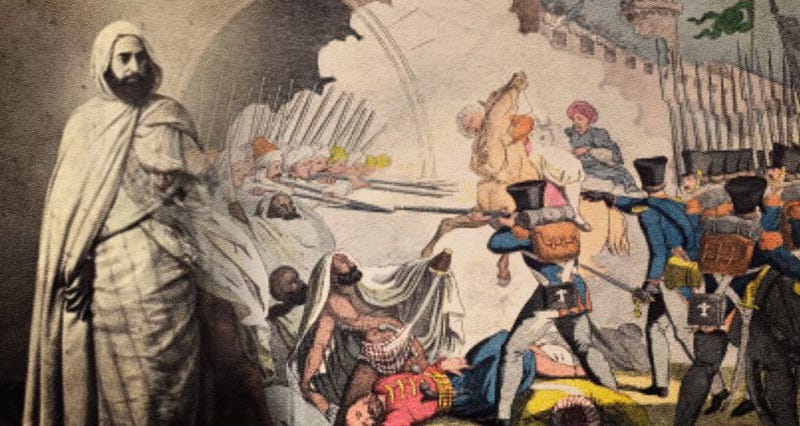A humbling experience : Launching 'The New Spirit of Islamism' at Oxford
Then came the Q&A, which stretched into a lively 45 minutes, with questions spanning the fractures within Ennahda and the Muslim Brotherhood, to speculating on the AKP in a post-Erdoğan era.
Hello, hello. Exciting updates from my end! Last Tuesday, 15 October, I had the privilege of kicking off the academic year’s seminar series with a joint event for the European Studies Centre and the Middle East Centre at St Antony’s College, University of Oxford.
This was especially meaningful for me for three reasons: these two centres have been academic havens for me at different stages of my life, shaping my intellectual path – and the chair of the talk, Prof. Michael Willis, was my PhD supervisor.
And secondly, the fact that I was standing in that room—where I once listened to world-renowned thinkers—was to introduce my new book, The New Spirit of Islamism. This book is the culmination of my work as a doctoral student at Oxford, and it felt humbling to present it in that space.
I had some concerns, though. Since it’s an academic book, I was worried it might be a tad bit drab for those unfamiliar with the Egyptian Muslim Brotherhood, Tunisia’s Ennahda, and Turkey’s AKP—their interplay after the Arab Uprisings is the core of the book. But I believe I managed to cut through the complexities, jargony methods and highlight the points most relevant under the rubric of public interest.
Then came the Q&A, which stretched into a lively 45 minutes, with questions spanning the fractures within Ennahda and the Muslim Brotherhood, to speculating on the AKP in a post-Erdoğan era. I admitted that I've lost the ability to imagine what that might even look like, let alone hope for it. Of course, I couldn’t handle every question well, which is inevitable when speaking to an Oxford audience filled with such extraordinary and brilliant students. But overall, it went smoothly, çok şükür.
You can watch a snippet from the talk below which was dutifully recorded by my dear friend and colleague Kemal Göktaş of Kısa Dalga news outlet, and soon the full session will be available as a podcast on the Middle East Centre’s series.
Also my previous Subs regarding my book are here.
The lasting logic of Algeria’s colonisation
A couple of days after my talk, one of the foremost sociologists of the Middle East, Charles Kurzman, gave a lecture. To be honest, it was exceptional—rich in detail, bringing each character from the French, Ottoman, and Arab Algerian sides to life so vividly that we in the audience felt like we were watching a movie. A horror movie, no less.
Kurzman shared a chapter from his upcoming book, centred on the concept of citizenship and the right to have rights. The chapter explored the French colonization of Algeria in 1834 and introduced three key figures: Abd al-Qadr, a nationalist Arab who declared himself the Emir of Algeria but failed to rally enough Islamic solidarity to resist the French; Hamdan Hodja, an Algerian who tried to negotiate rights for his people under colonial domination; and Bertrand Clauzel, the French general and governor whose name is etched into the Arc de Triomphe in Paris.
We learned through his research: How Algerian lands were gradually seized if left uncultivated. How Algerian Muslims were denied all rights or legal protection, while Christians were swiftly granted citizenship, followed by Jews a few decades later through a special decree—Muslims, however, remained excluded.
We see that Enlightenment ideals and the Law of Nations by Emer de Vattel did not extend to those under colonial rule. And we realize that the violent methods used by Americans to wipe out Native Americans and by the French to 'civilize' Algeria were not isolated but exchanged between colonial powers.
We also learn how Alexis de Tocqueville, while working on his book Democracy in America, became intrigued by the prospect of acquiring land in Algeria after spotting an advertisement in the newspaper. He believed that his homeland, France, would 'civilize' Algeria, offering great opportunities that would benefit both the French and the Algerians—just as the Native Americans had supposedly 'benefited' from the 'civilization' brought to them by Americans. Oh-my-word!
It was unsettling to hear what Kurzman had uncovered, and even more disturbing to recognize how this colonial mindset still resonates across the Middle East and Africa today.
For more information about Prof Charles Kurzman: here
I also highly recommend one of his earlier works, The Unthinkable Revolution in Iran : here






Your talk was amazing Dr. Basaran. The ability to simplify a thorough academic research and make it accessible for all is exceptional and you are obviously well endowed with that quality! Congrats. Thank you also for sharing the insights from Professor Charles Kurzman. It is depressing to see the continuities in the exclusionary and dehumanising practices!